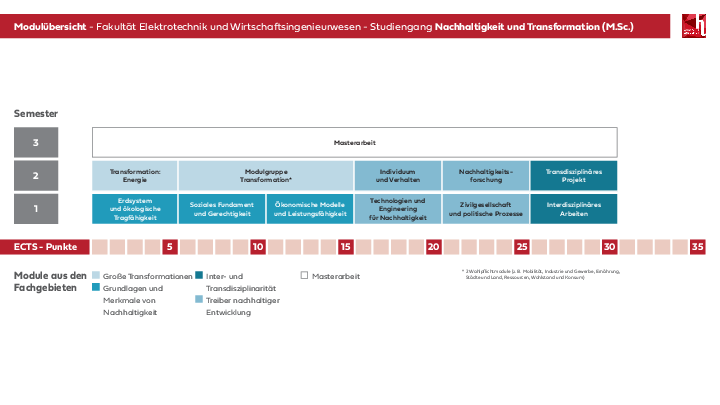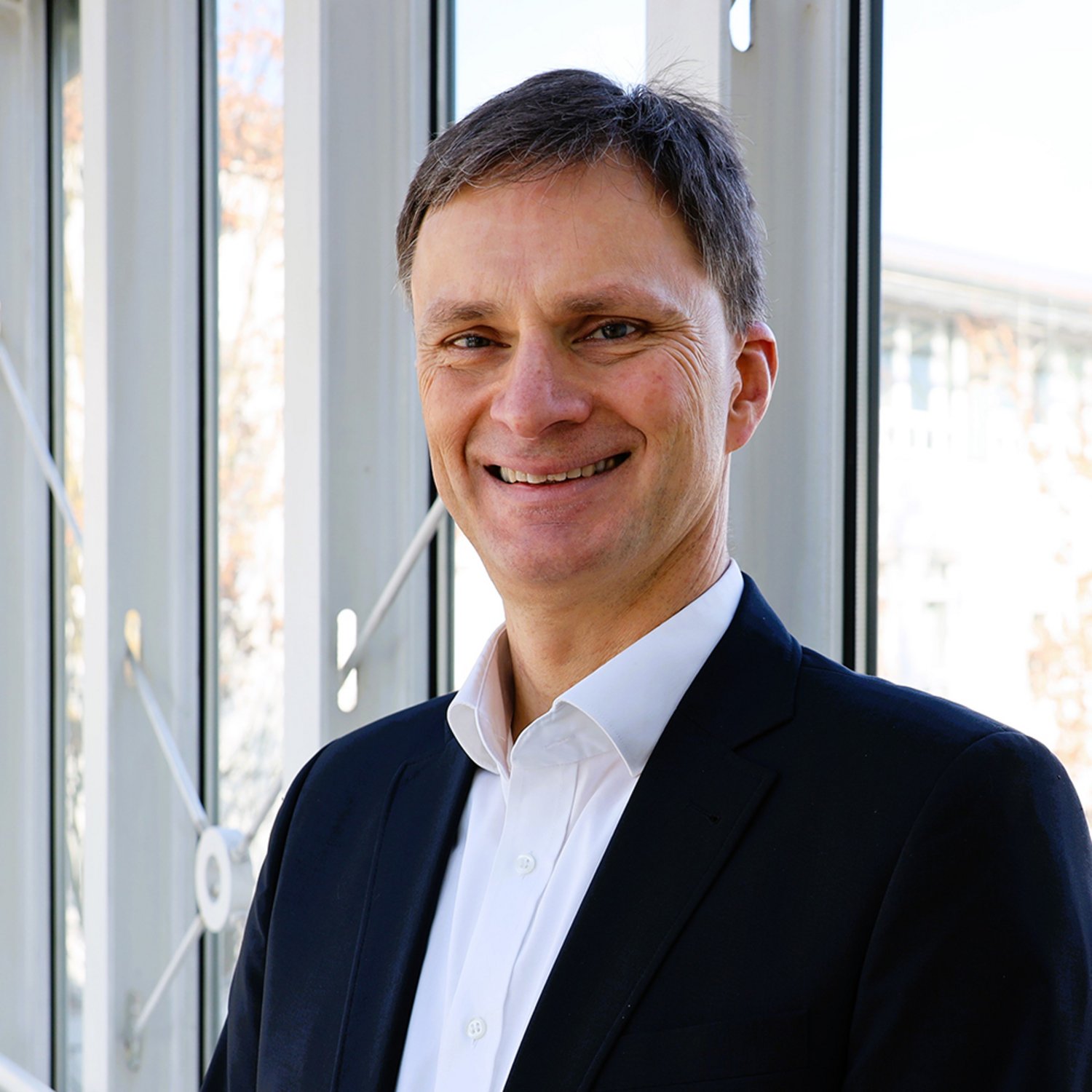
Sustainability and Transformation
Master
Durch umfassendes Fachwissen und einen interdisziplinären Ansatz bilden wir Nachhaltigkeitsexpertinnen und -experten von morgen aus. Studierende aller Fachrichtungen und Studienabschlüsse ergänzen ihren ersten akademischen Berufsabschluss mit Fachwissen der Nachhaltigkeitswissenschaft und werden so zu Neudenkern für Nachhaltige Entwicklung mit einem Abschluss als Master of Science (M.Sc.).
| Start | Winter semester |
|---|---|
| Admission Criteria | Unrestricted admission |
| Application period | 15.04.2025 - 15.08.2025 |
| Study format | Full time, with in-depth practical experience |
| Study cost | None (only semester fee) |
| Normal duration | 3 Semester |
| Language | German |
| ECTS | 90 |
Programme content
The programme covers the following topics:
- Fundamentals and characteristics of sustainability: ecological viability, social justice, economic performance.
- Drivers of sustainable development: technologies and engineering, civil society and political processes, individuals and behaviour, sustainability research.
- Interdisciplinary work and transdisciplinary projects with non-university partners.
- Transformation fields: Energy, mobility, cities and countryside, industry and commerce, prosperity and consumption, resources, nutrition.
Students acquire knowledge and skills in sustainability science for holistic system change. This includes the basics of natural, social and economic sciences; an understanding of change processes in companies, politics, civil society, science and at an individual level; knowledge of the cultural, technological, political and economic challenges and approaches to solutions in several transformation fields such as energy, mobility, prosperity and consumption, cities and the countryside as well as intellectual-analytical, integrative, normative and initiative competences for sustainable development, in particular for inter- and transdisciplinary work.

Study programme
The Master's degree programme has a modular structure and comprises three semesters in which a total of 90 ECTS credits are earned. The programme starts in the winter semester. It is not possible to start in the summer semester. However, two modules can be completed as part of the modular programme, with subsequent recognition. (Modules: Individual and Behaviour, Sustainability Research).
In the first semester, students learn the basics and characteristics of sustainability. The first drivers of sustainable development are also dealt with. In a further module, the methodology of interdisciplinary work is taught as a key competence.
In the 2nd semester, further drivers of sustainable development are discussed. The knowledge acquired so far is brought together in three modules on major transformation fields; the transformation field of energy is compulsory due to its great importance; two further transformation fields are covered by compulsory elective modules. In the transdisciplinary project, student teams work together with non-university partners.
In the Master's thesis in the 3rd semester, students work independently and according to scientific principles on a topic of sustainability and transformation, if desired in cooperation with a company or another organisation. In doing so, they can also make in-depth reference to the specialisation of the previous degree programme.
Modules
Moduleson the foundations and characteristics of sustainability:
Earth system and ecological carrying capacity, social foundations and justice, economic models and performance.
Moduleson drivers of sustainable development
Technologies and Engineering, Civil Society and Political Processes, Induviduum and Behaviour, Sustainability Research
Modules on major transformations:
Energy (compulsory), compulsory elective modules: Industry and commerce, mobility, cities and countryside
Modules on inter- and transdisciplinarity:
Methodology of interdisciplinary work, Transdisciplinary project
Master's thesis



